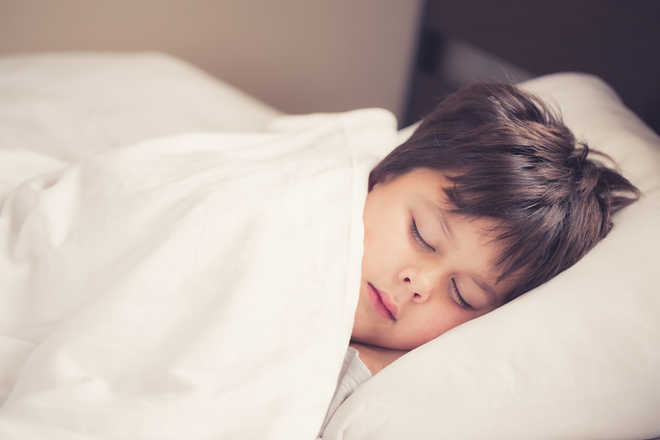
iStock
Washington, March 18
Untreated sleep apnea in children causes loss of grey matter - brain cells involved in movement, memory, emotions, speech, perception, decision making and self-control, researchers including one of Indian origin have found.
The finding points to a strong connection between this common sleep disturbance, which affects up to five per cent of all children, and the loss of neurons or delayed neuronal growth in the developing brain.
Researchers, including those from University of Chicago in the US, evaluated about 16 children aged between 7 and 11 years with obstructive sleep apnea (OSA) overnight.
Each child went through neuro-cognitive testing and had their brain scanned with non-invasive magnetic resonance imaging (MRI).
The researchers compared the scans, plus neuro-cognitive test results, with MRI images from nine healthy children of the same age, gender, ethnicity and weight, who did not have apnea.
They also compared the 16 children with OSA to 191 MRI scans of children who were part of an existing paediatric-MRI database.
Researchers, including Rajesh Kumar of the University of California, Los Angeles, found reductions in the volume of gray matter in multiple regions of the brains of children with OSA.
These included the frontal cortices (which handle movement, problem solving, memory, language, judgement and impulse control), the prefrontal cortices (complex behaviours, planning, personality), parietal cortices (integrating sensory input), temporal lobe (hearing and selective listening) and the brainstem (controlling cardiovascular and respiratory functions).
This extensive reduction of gray matter in children with a treatable disorder provides one more reason for parents of children with symptoms of sleep apnea to consider early detection and therapy, researchers said.
"The images of gray matter changes are striking," said Leila Kheirandish-Gozal of University of Chicago.
"We do not yet have a precise guide to correlate loss of gray matter with specific cognitive deficits, but there is clear evidence of widespread neuronal damage or loss compared to the general population," she added.
"If you're born with a high IQ - say 180 - and you lose 8 to 10 points, which is about the extent of IQ loss that sleep apnea will induce on average, that may never become apparent.
"But if your IQ as a child was average, somewhere around 90 to 100, and you had sleep apnea that went untreated and lost 8-10 points, that could potentially place you one standard deviation below normal," said David Gozal of University of Chicago.
The study was published in the journal Scientific Reports. — PTI



























